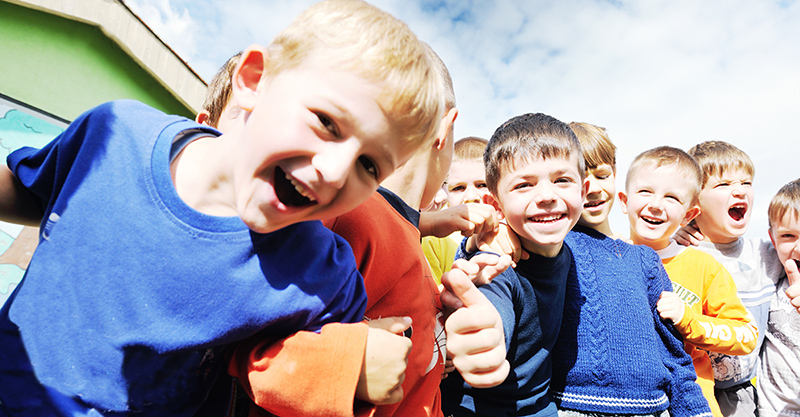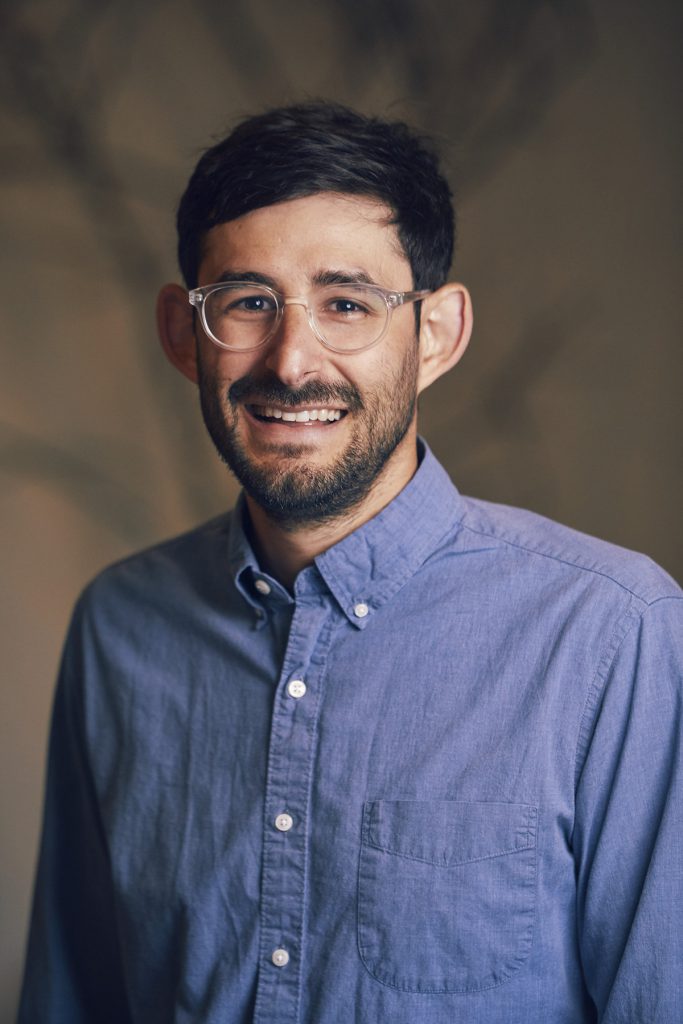
Imagine an energetic group of second and first graders forming a line and moving around their school’s auditorium in a caterpillar-like formation. Video sensors in the room detect their motion and display their movement as “particles” on a projection screen. They are giggling and smiling, “modeling” how particles combine as they learn about changes in states of matter.
Now, picture another group of children the same age. They also are learning about states of matter in an auditorium through play. However, this group is more singularly focused, more intent. They are competing. During their “game,” video sensors in their gym track their movement as they attempt to change states of matter inside their robot displayed on a projection screen. As the robot’s insides change from solids, to liquids, to gases, the changes cause it to move in different ways. If the group can get their robot away from the imaginary volcanic island, they win.

Which scenario, modeling or the game, is a more effective way for children to learn scientific concepts? A recently published study by David DeLiema, assistant professor in the Department of Educational Psychology’s psychological foundations of education program, “Roles, Rules, and Keys: How Different Play Configurations Shape Collaborative Science Inquiry,” finds that both settings are equally productive with respect to learning but that students take markedly different pathways toward learning. Published in the Journal of the Learning Sciences, a flagship journal in the field of educational research, the study compares how first and second graders use their bodies to change roles, break the rules, and sustain playfulness while learning in both the modeling (open-ended) and game (competitive) activities described above.
The study is part of the Science Through Technology-Enhanced Play (STEP) design-based research project, a partnership between DeLiema and colleagues Noel Enyedy at Vanderbilt University and Joshua Danish at Indiana University. The STEP project studies how socio-dramatic, embodied play among elementary school students can help them understand scientific phenomena.
Read the full article in the Journal of Learning Sciences.



